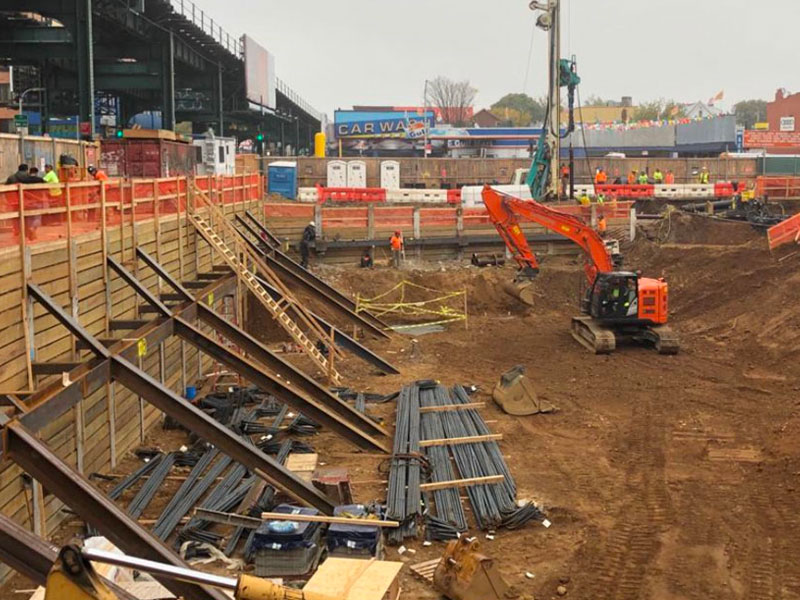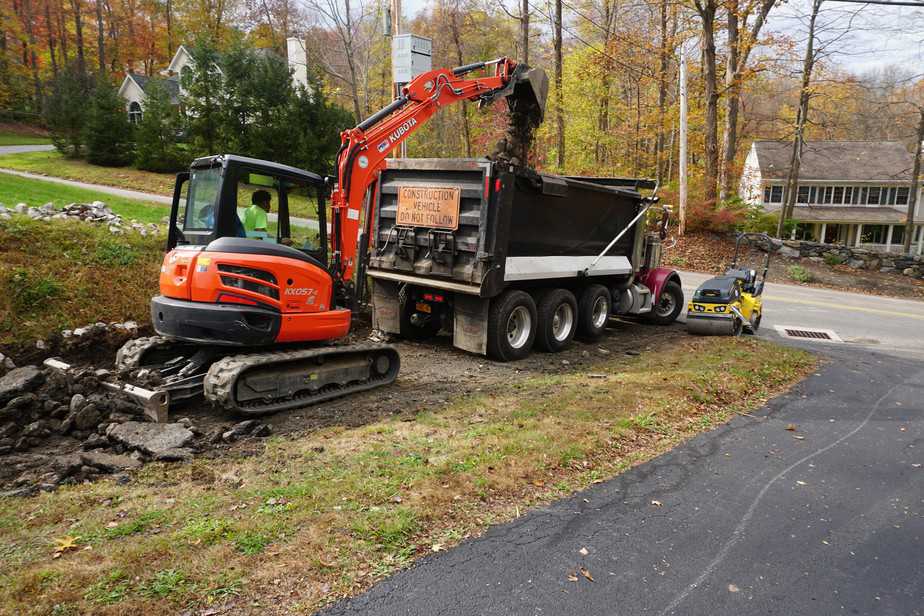Lancaster Excavation - Expert Excavation Services in Lancaster, OH
Lancaster Excavation - Expert Excavation Services in Lancaster, OH
Blog Article
Comprehensive Excavation Methods: Grasping the Fundamentals for Success
In the realm of building and civil design, the significance of reliable excavation techniques can not be overemphasized. The careful preparation, accurate implementation, and careful attention to detail needed in excavation jobs demand a detailed approach that encompasses numerous essential facets. From initial dirt analysis to the execution of safety steps and normal development monitoring, mastering these core aspects is vital for attaining success in any kind of excavation undertaking. The true proficiency exists not simply in recognizing these principles yet in perfectly incorporating them to browse the complexities of excavation tasks with finesse.
Understanding Excavation Task Preparation

Effective excavation projects are improved the structure of detailed and precise planning. The initial phase of any type of excavation project is the drawing board, where important decisions are made that can substantially affect the outcome of the task. Throughout this phase, it is necessary to gather all relevant info about the website, including topographical surveys, soil structure, and any potential dangers that might exist. Understanding the task timeline, spending plan, and scope restraints is vital for developing a comprehensive excavation plan that makes certain the project's success.
One key aspect of excavation project planning is the growth of a comprehensive timeline that describes the sequence of due dates, milestones, and activities. This timeline functions as a roadmap for the task group, enabling them to track development and make required adjustments to make certain the task remains on routine. In addition, a well-defined budget that represents all expenditures, including devices rental, labor expenses, and materials, is important for staying clear of expense overruns and hold-ups. By thoroughly considering all these elements throughout the drawing board, excavation jobs can be carried out successfully and successfully, leading to effective outcomes.
Dirt Evaluation and Website Examination
Conducting comprehensive soil analysis and site assessment is an important action in the preparation phase of any excavation job. Soil analysis involves identifying the make-up, framework, and buildings of the soil at the excavation website. This information is critical for recognizing the dirt's bearing capacity, dampness material, and capacity for erosion, which are essential variables in identifying the excavation techniques and equipment required for the project.
Site examination surpasses soil evaluation and includes a wider evaluation of the total website problems. This analysis consists of recognizing any kind of potential hazards, such as underground energies, environmental worries, or unstable surface, that might impact the excavation procedure. By completely evaluating the site, project supervisors can create efficient excavation approaches that focus on safety, performance, and environmental management.
Utilizing sophisticated modern technologies like ground-penetrating radar, soil tasting, and drone surveys can improve the accuracy and efficiency of soil analysis and website evaluation. Spending time and sources in these preliminary steps can inevitably save time and protect against expensive hold-ups or complications during the excavation process.
Devices Choice and Utilization
Effective excavation projects depend heavily on calculated equipment choice and usage to make sure optimal performance and productivity. Picking the right tools for the job is critical in making best use of effectiveness and minimizing downtime. Elements such as the type of dirt, depth of excavation, and job extent play a substantial function in identifying the most ideal equipment for the task at hand.

In enhancement to picking the suitable equipment, appropriate utilization is crucial to job success. Operators must be trained to take care of the devices securely and efficiently - lancaster trenching. Regular maintenance checks and prompt repair work help protect against failures and ensure consistent performance throughout the project
Precaution and Rules Conformity
In the world of excavation tasks, focusing on safety and security steps and compliance with policies is critical to making sure a lawfully audio and protected functional environment. Precaution include a variety of techniques, consisting of conducting complete website assessments, carrying out proper signs and barriers, and supplying adequate safety training for all employees associated with the excavation procedure. Adherence to regulations, such as OSHA demands in the USA, makes sure that the excavation job meets the needed standards to secure workers, onlookers, and the surrounding environment.

Surveillance Development and Adjusting Methods
How can project supervisors effectively track the innovation of excavation tasks and adjust their techniques appropriately to enhance end results? Monitoring progression is vital for making sure that excavation tasks remain on track and satisfy due try this site dates.

Verdict
To conclude, understanding the basics of comprehensive excavation approaches is necessary for the success of any task. By comprehending project preparation, examining soil and website conditions, selecting appropriate equipment, adhering to safety and security laws, and keeping track of progression, project supervisors can make sure a smooth and effective excavation process. Executing these techniques will cause successful outcomes and decrease possible threats or obstacles throughout the excavation job.
The first stage of any type of excavation project is the planning phase, where essential decisions are made that can significantly affect the outcome of the job. Recognizing the project budget, range, and timeline restraints is important for developing a thorough excavation strategy that ensures the task's success.
How can forecast managers successfully track the innovation of excavation jobs and adjust their approaches as necessary to optimize end results? By carefully checking progress and being ready to adapt approaches, task managers can enhance the overall success of excavation tasks.
By recognizing task preparation, assessing dirt and website problems, choosing proper devices, conforming with safety and security laws, and keeping track that site of development, job supervisors can ensure a smooth and reliable excavation procedure.
Report this page